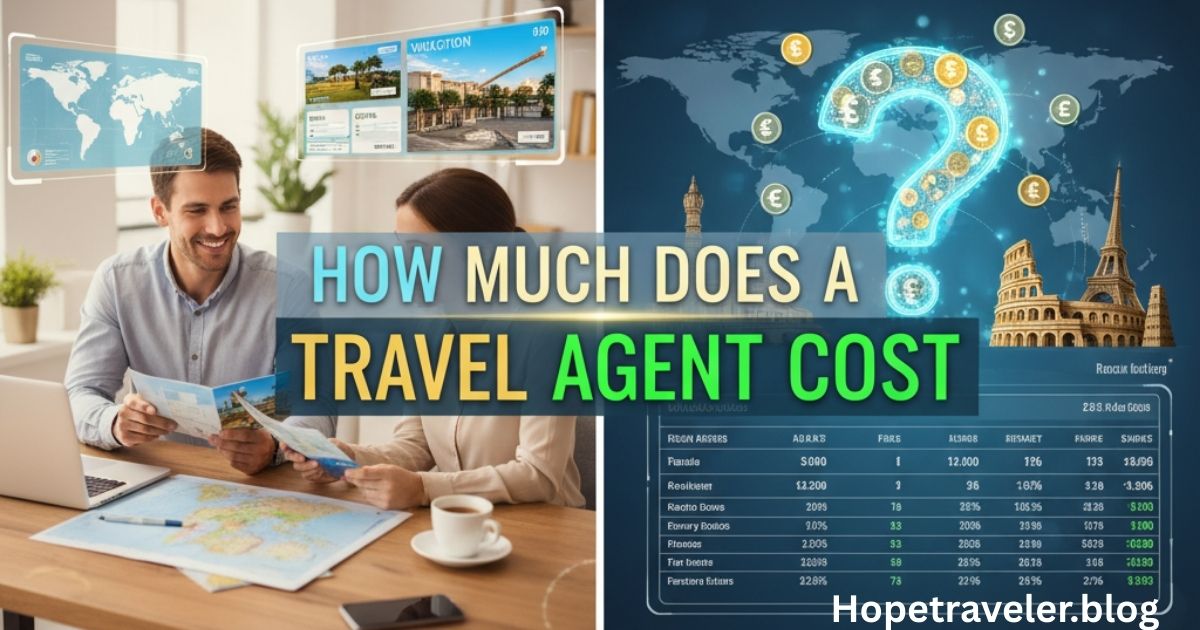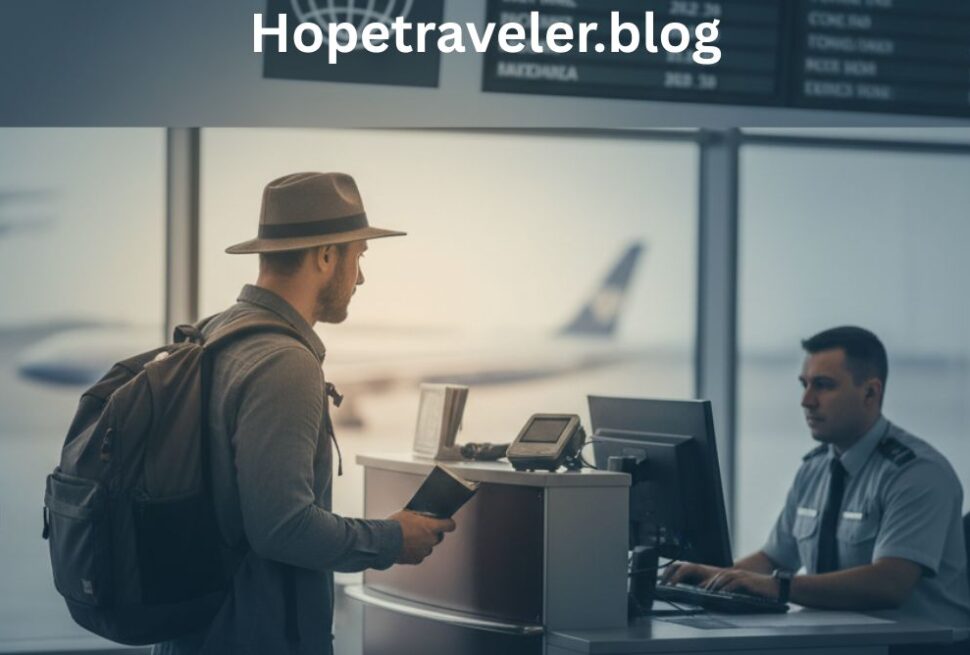In the era of online booking engines and do-it-yourself travel planning, many people still turn to travel agents for expertise, convenience, and access to exclusive deals. However, one of the most common questions that arises is: How much does a travel agent cost?
The cost of using a travel agent varies depending on the services provided, the destination, and the complexity of your trip. Some travelers assume agents are expensive, while others believe their services are free. In reality, the truth lies somewhere in between. According to Wikipedia, a travel agent is a person or business that provides tourism-related services to the public on behalf of suppliers such as airlines, cruise lines, hotels, and tour operators. To fully understand the cost, let’s break down how travel agents charge, what influences their fees, and whether using an agent is worth the price.
Do Travel Agents Charge a Fee?
Traditionally, travel agents earned commissions directly from airlines, hotels, and tour companies. This meant that customers rarely paid out of pocket for their services. However, in recent years, commission structures have changed.
Today, many travel agents still receive commissions from suppliers, but some also charge service fees to cover their time and expertise. Whether you pay depends on the type of trip you are booking and the agency’s policies.
Average Cost of a Travel Agent
On average, the cost of a travel agent can range from $50 to $500, depending on the type of booking.
- Airline Tickets: Service fees for booking flights typically range between $25 and $75 per ticket.
- Hotel Reservations: Many agents do not charge fees for hotels since they earn commissions from the property.
- Cruises: Travel agents often book cruises at no additional charge, as cruise lines provide commissions.
- Complex Itineraries: For multi-destination trips, agents may charge planning fees between $100 and $500.
- Luxury Travel: Premium services, including personalized itineraries, can cost even more, but they often come with added perks and upgrades.
How Travel Agents Make Money
Understanding how agents earn income helps clarify why fees vary. There are two main revenue sources:
1. Commissions from Suppliers
Airlines, hotels, cruise lines, and tour operators pay agents a percentage of the booking value. This system ensures that many travelers do not directly pay for the agent’s service.
2. Service or Consultation Fees
To supplement commission income, some agencies charge upfront fees for planning, research, and booking. This is especially common for customized trips or independent travel arrangements where commissions may not apply.
Why Some Travel Agents Are Free for Customers
In many cases, using a travel agent may not cost you anything extra. For example, if you book a cruise or a hotel through an agent, they are paid by the company, not you. This means travelers benefit from expert guidance without additional expenses.
Factors That Influence Travel Agent Costs
Trip Complexity
The more complicated your trip—such as multiple flights, international destinations, and special accommodations—the more likely an agent will charge a planning fee.
Type of Travel
Simple trips like booking a domestic flight might involve a small fee, while luxury international vacations could require a higher consultation cost.
Agency Policies
Each agency sets its own fee structure. Independent agents may charge differently compared to large, well-known travel companies.
Destination
Popular tourist destinations often come with lower or no fees, while remote or specialized destinations may require more research and incur higher charges.
Benefits of Using a Travel Agent
Even if you pay a fee, the advantages can outweigh the cost. Some key benefits include:
- Time Savings: Agents handle research, booking, and itinerary planning.
- Expert Knowledge: They have access to insider tips and destination expertise.
- Exclusive Deals: Agents often secure discounts or perks unavailable online.
- Support During Travel: If something goes wrong, agents can help rebook flights or resolve issues.
- Customization: Personalized itineraries that suit your budget and preferences.
Travel Agent vs. Online Booking
When comparing travel agents to online booking platforms, cost is not always the only factor.
- Online Booking: Usually cheaper upfront but requires self-management.
- Travel Agent: May involve a fee but comes with added value, expertise, and convenience.
For frequent or simple trips, online booking might suffice. For once-in-a-lifetime vacations or luxury experiences, an agent’s fee is often worth the investment.
How to Save Money with a Travel Agent
If you’re concerned about the cost, here are a few tips to make the most of an agent’s services:
- Be Clear About Your Budget – Let the agent know your spending limits.
- Ask About Fees Upfront – Confirm whether the agency charges service fees.
- Compare Value – Consider the perks and upgrades agents may provide that outweigh fees.
- Leverage Commission-Based Bookings – Book hotels, cruises, or tours where agents earn commissions so you avoid extra charges.
Examples of Typical Travel Agent Fees
Here are some real-world examples of what you might pay:
- Domestic Flight: $30 service fee per ticket.
- International Flight: $50–$100 fee per ticket.
- Customized European Vacation: $200–$400 planning fee.
- Luxury Safari Package: $500+ for personalized planning.
While fees vary widely, knowing the ballpark range helps travelers plan ahead.
Are Travel Agents Worth the Cost?
The answer depends on your needs as a traveler. For someone booking a quick domestic trip, paying an extra fee may not make sense. However, for complex journeys, a travel agent’s knowledge and connections can save both money and stress.
In many cases, the upgrades, perks, and peace of mind they provide make the cost worthwhile. For example, a travel agent might secure free hotel upgrades, onboard credits for cruises, or special airfare discounts that more than offset their fees.
The Future of Travel Agents
While some argue that online booking platforms will replace agents entirely, the demand for personalized travel services remains strong. In fact, luxury and adventure travel sectors are seeing increased reliance on experienced travel advisors.
The cost of using an agent may evolve, but their value in providing unique experiences and troubleshooting travel disruptions will keep them relevant in the industry.
Conclusion
So, how much does a travel agent cost?
The cost varies based on the type of travel, the complexity of your itinerary, and the agency’s policies. While some bookings may include service fees ranging from $25 to $500, many services remain free to the customer because agents earn commissions directly from travel suppliers.
For travelers seeking simple trips, online booking may be sufficient. But for those who want expert guidance, exclusive deals, and peace of mind, paying a travel agent fee can be a smart investment.
In the end, whether a travel agent is worth the cost depends on your priorities—budget, convenience, and the value you place on professional travel planning.




